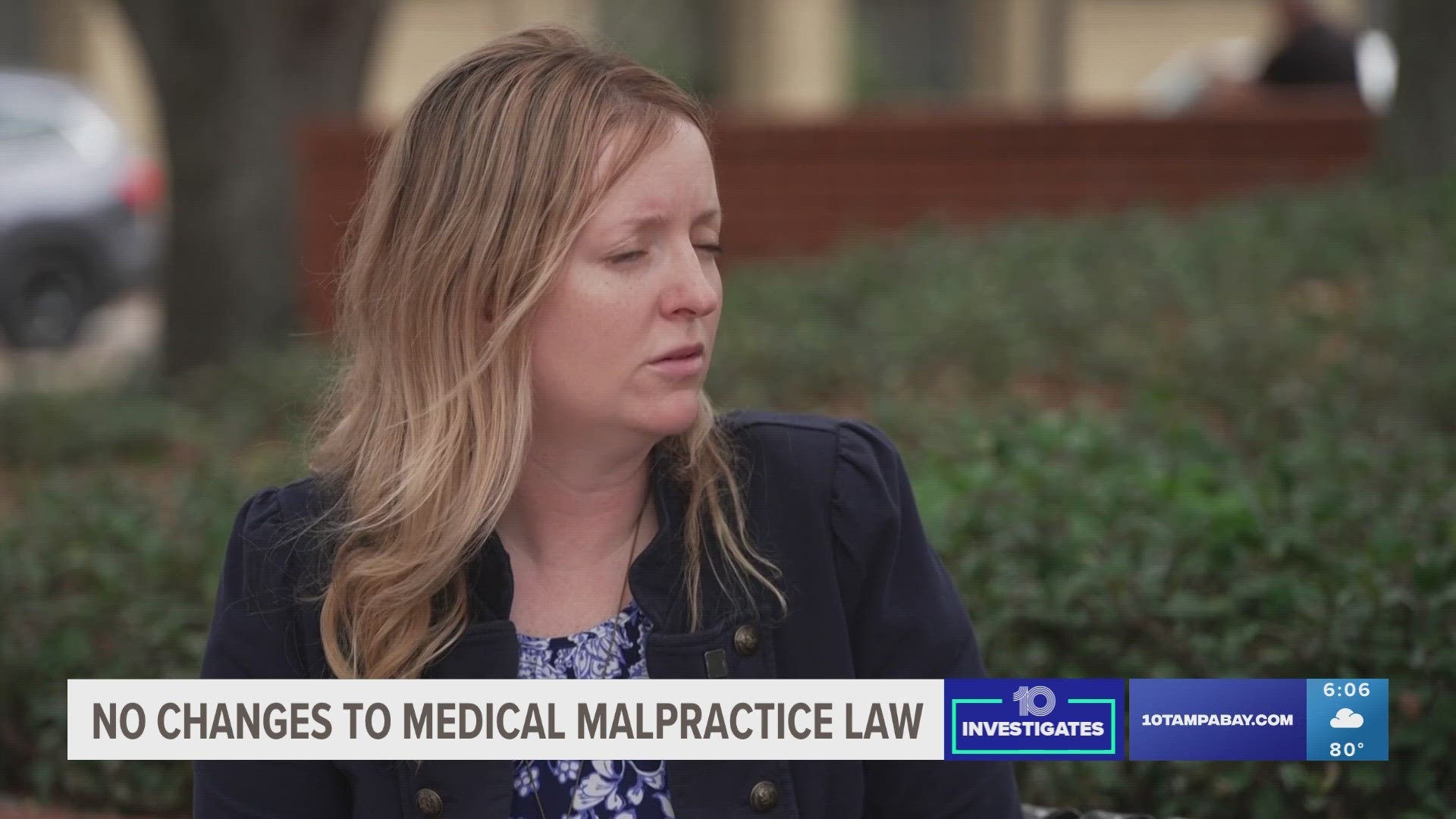TAMPA, Fla. — On this final day of Florida’s legislative session, a subsection of state statute that critics call our “free kill” law is still intact – despite renewed energy to repeal it this year.
Lawmakers filed five bills this session to overturn the law, which limits who can sue over medical malpractice deaths.
None of them passed.
For Sabrina Davis, who regularly advocated for repeal in Tallahassee this year, it’s a disappointing outcome.
“I feel like this legislative session has been the most eye-opening session that I've been a part of,” she said. “We had a chance. We had a chance this year to fully repeal subsection eight.”

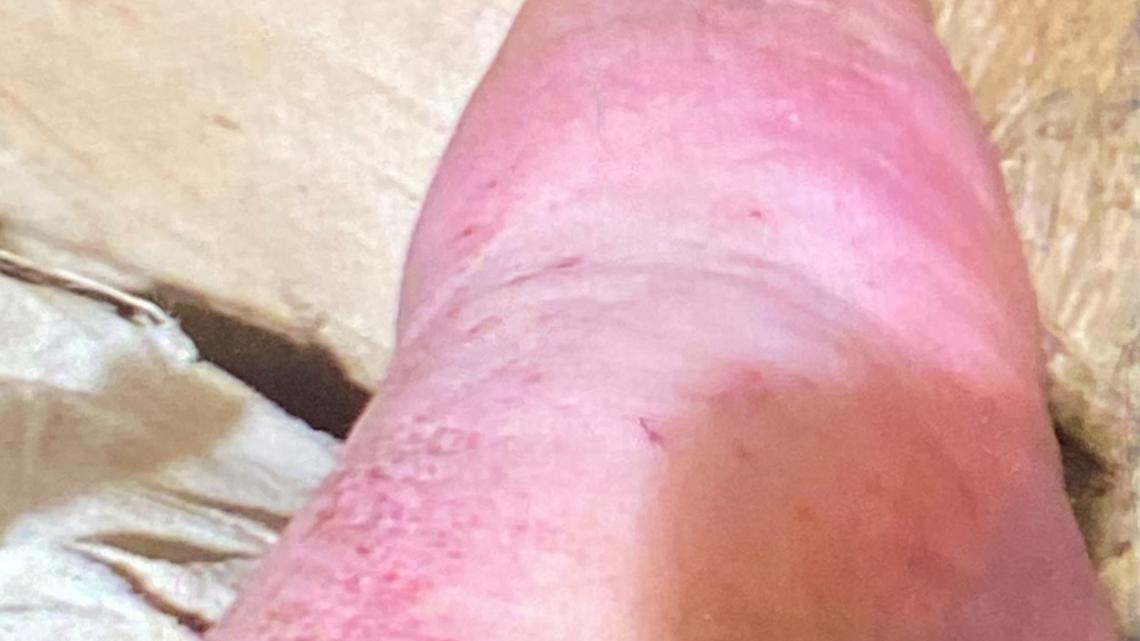
Her father Keith Davis, a Navy veteran, died in 2020 – five days after he showed up at a hospital with a swollen knee that wouldn’t bear weight.
“The hospital refused to do an autopsy. And, after I paid for one privately, it confirmed that my dad died of a 9-inch-long blood clot,” Davis said. “100% preventable. He had every sign and symptom for the blood clot, but nothing was ever done to address it.”
The Florida Department of Health found Keith Davis’ doctor committed medical malpractice by failing to assess and treat his elevated risk for deep vein thrombosis and pulmonary embolism, which is a blood clot, often in the leg, that travels to the lungs.
The Department made the doctor pay a $7,500 fine plus about $4,000 for the department’s investigation costs, take 13 hours of continuing education courses, and hire a risk manager to review his practice. The DOH also issued “a Letter of Concern” against the doctor’s license.
“It was extremely degrading for me to hear that they put such a low punishment on something that changed my life forever,” Sabrina Davis said.

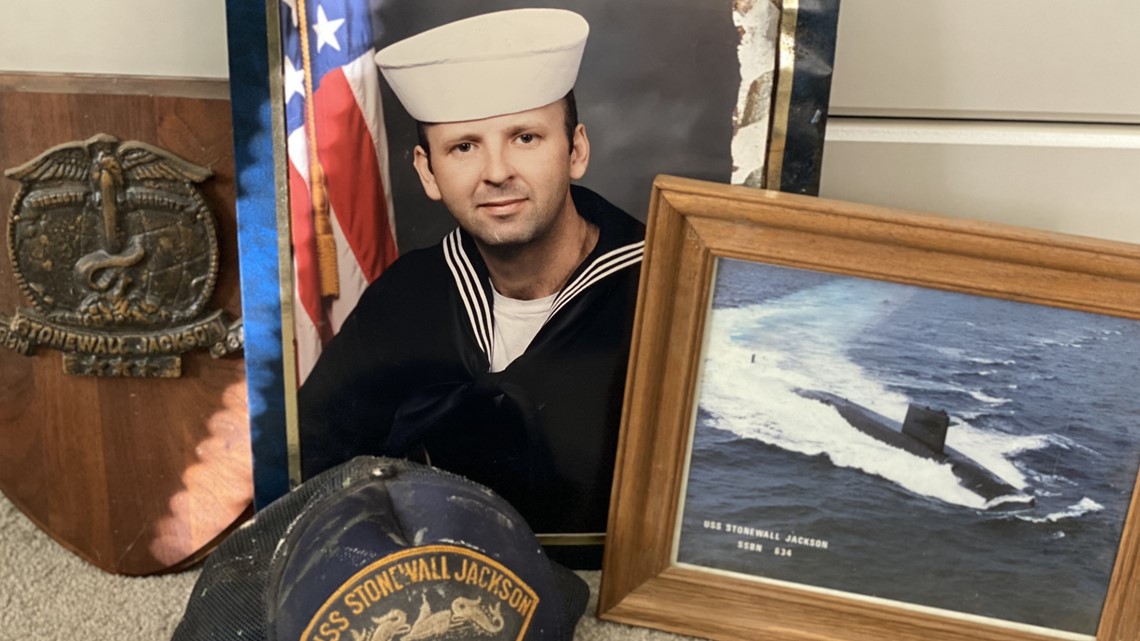
Patients’ families don’t see a dime of those fines, but the Department of Health was her only avenue for justice because of Florida law.
If you are 25 or older, unmarried or widowed and have no children under the age of 25, you’re what critics of Florida’s law call a “free kill.”
If that’s you, subsection eight of Florida’s Wrongful Death Act states your loved ones can’t sue the doctor or healthcare facility for mental pain and suffering damages.

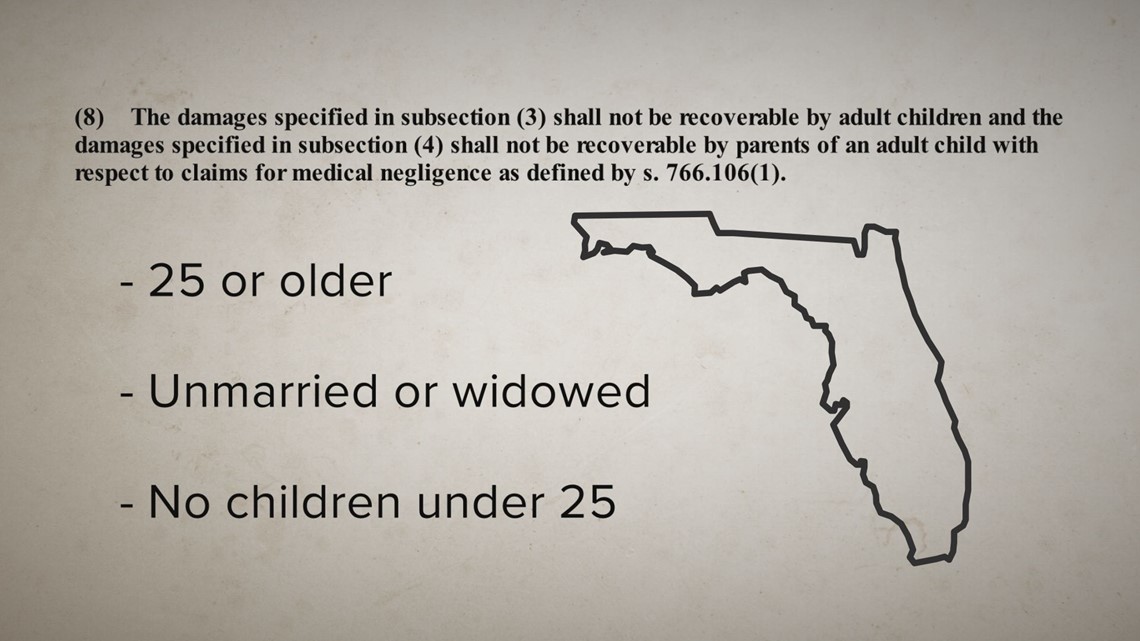
“After eight attorneys asked me, ‘Was your dad married?’ I'm like, ‘No.’ They said, ‘How old are you?’ And I said, ‘30.’ They’re like, ‘Sorry, we can't help you.’ I realized that, you know, how can I change this?” Davis said.
Of the five bills filed by Florida lawmakers this session to fully or partially repeal that restriction, only one made any progress. Sen. Clay Yarborough’s SB 248 got approved by its first committee. Then it went nowhere.
“We started to get some more headwinds from the House and eventually realized that it wasn’t something that the House wanted to pick up,” said Yarborough, R-Jacksonville. “I’ve already spoken to the incoming president for next year, Sen. [Ben] Albritton, and told him that I still want to work on this and repeal that law.”
Yarborough’s bill would have fully repealed the so-called “free kill” law. So, anyone would be able to sue over their loved one’s suspected medical malpractice death. But it would have added caps on pain and suffering damages for anyone who sues over wrongful deaths or injuries caused by medical malpractice.
Yarborough said the goal was to prevent doctors’ liability insurance from skyrocketing, although 10 Investigates found it doesn’t always work out like that in other states with caps.
“The medical community actually kind of reversed course on it right before session and decided that they'd be willing to support creating that new class of claimants in exchange for what was also attached to that bill, which was caps on noneconomic damages,” Attorney Andy Bolin said.

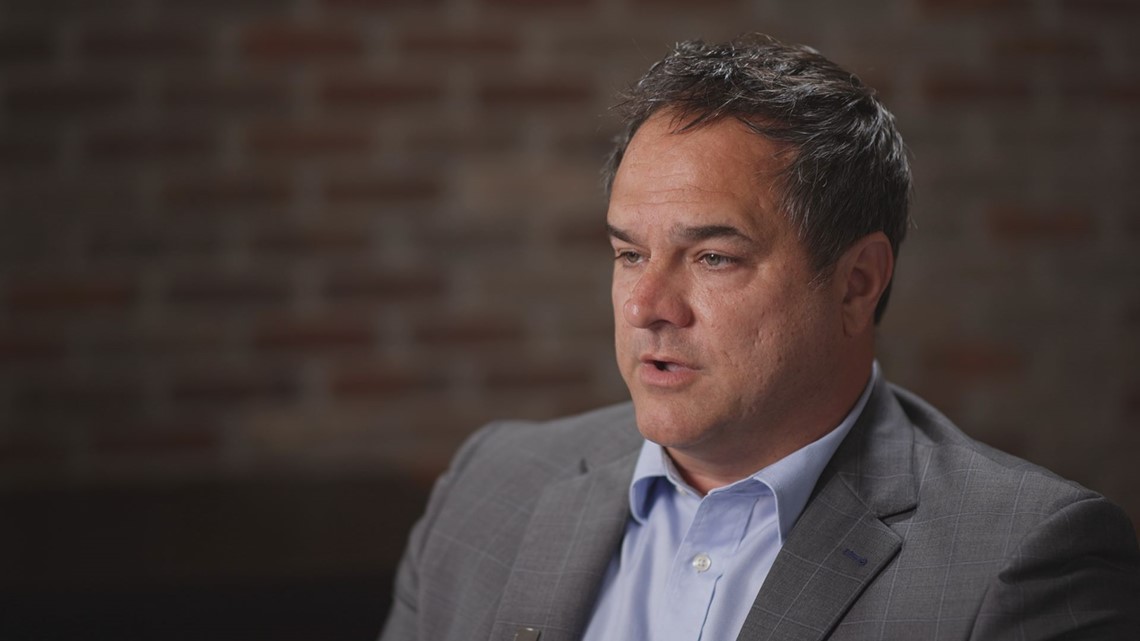
Bolin has been representing Florida doctors and hospitals for decades.
“Everyone was anxious to try to fix this issue that had gotten such publicity and there was so much attention around it. And so, I think everyone's a little disappointed that, you know, we're going to end the session without a solution,” he said. “I hope that this conversation continues. And I think the medical community wants it.”
Sabrina Davis said she’s not giving up.

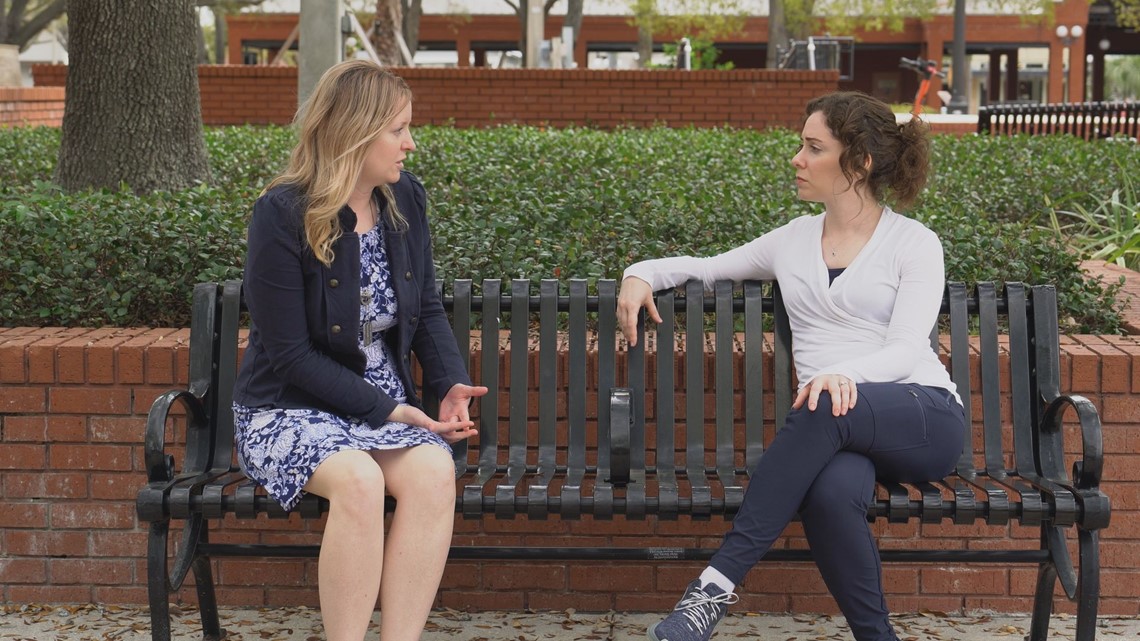
“We have a year to come back stronger,” she said. “So, there's a lot of work to be done between now and next session. And I'm not going to stop.”
Her father’s dog tags around her neck serve as a reminder of his faith in freedom.
“I feel, in some way, that that torch has been handed to me, to continue to fight for our freedom, even if it’s in a different way,” Davis said.
At least six bills that would have changed this part of Florida’s Wrongful Death Act died in committee during Florida’s previous two legislative sessions.

